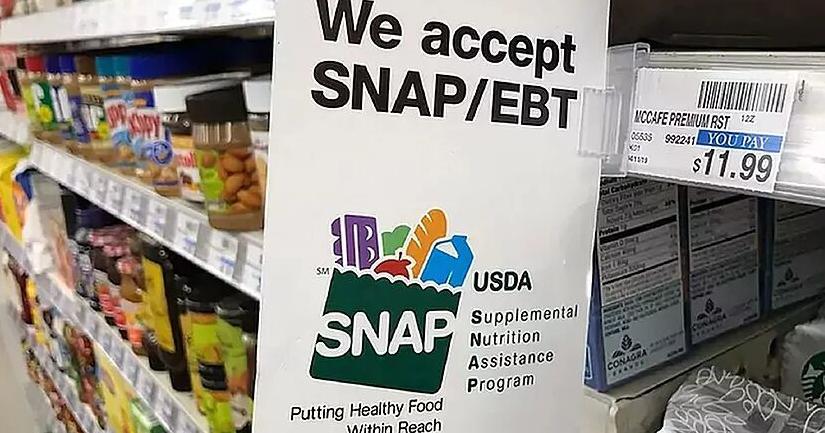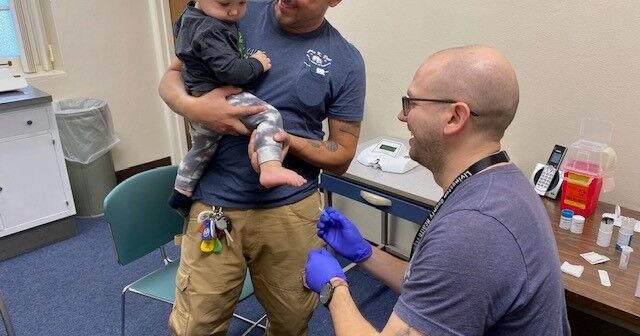New Measure Aims to Increase Meal Options for Students in New York

Universal School Meals Act: A Lifeline for Struggling Families in Rochester, NY
As the cost of living continues to soar across the country, many families are grappling with the harsh reality of food insecurity. A shocking statistic reveals that for some children, the meals provided at school are the only reliable source of nutrition they receive each day. This pressing concern has prompted New York Senator Kirsten Gillibrand to advocate for transformative legislation aimed at alleviating this issue: the Universal School Meals Program Act. This proposed bill seeks to provide every student—regardless of income status—with free breakfast, lunch, dinner, and even a snack.
The thought of free meals is certainly a beacon of hope for families who are struggling to make ends meet. Rochester resident and parent Dylan Foster voiced his support for the bill. “It would definitely help a lot of families out,” he remarked. “For their kids to come home with free food would be a significant benefit to those families.” This sentiment captures the essence of Gillibrand’s initiative—that all children should have access to nutritious meals without a sense of financial stigma.
Gillibrand herself points out the pressing necessity for such a program, stating, “For a lot of kids, we know that the best meal they might get is school lunch.” The proposed legislation aims not only to provide meals during school hours but also to extend this support into the evening, ensuring that children receive adequate nutrition for both their bodies and minds. By addressing these nutritional gaps, Gillibrand advocates for the well-being of future generations.
The urgency of the matter is underscored by the fact that only eight states in the U.S. currently have universal free meal options for students. This highlights the disparate access to essential resources that exists across the country. Research has shown that when children receive adequate nutrition, they perform better academically and exhibit fewer behavioral issues. According to studies, well-fed children are generally better equipped to concentrate in class and engage with educational material, fostering a more productive learning environment.
Gillibrand emphasizes a ripple effect that comes from improving children’s nutrition: “If we have better humans graduating, we have better people as adults and healthier adults.” The implications of this legislation extend beyond immediate hunger; it’s about building a healthier, more educated society.
In addition to providing meals during the school year, the Universal School Meals Program Act also seeks to expand existing summer food service programs and the summer Electronic Benefits Transfer (EBT) program to include all children. This means that during the summer months, when school is out and children may not have access to free meals, families eligible for the program will continue to receive crucial nutritional support. This is particularly important in Rochester, where many families rely on school lunches as a vital component of their children’s diets.
The legislative push is also backed by various studies that highlight the long-term benefits of nutrition on academic performance and mental health. A well-fed child is not just less likely to face behavioral issues; they are also more inclined to engage positively in their surroundings and communities, laying the foundation for a brighter future.
In a society where food insecurity plagues millions, Gillibrand’s initiative has the potential to create substantial change. By breaking down the barriers that prevent children from having access to meals, this legislation could level the playing field, allowing every child, regardless of their family’s financial situation, to benefit from the same nutritional resources.
Rochester is at a crucial juncture, and the Universal School Meals Program Act presents a golden opportunity to transform the lives of children and families struggling with food scarcity. As discussions continue among lawmakers, community leaders, and concerned citizens, the hope is that an informed and compassionate approach will prevail, securing a brighter, healthier, and more equitable future for all students.
In a world increasingly marked by economic challenges, the urgency of advocating for initiatives like the Universal School Meals Program Act has never been more crucial. After all, nourishing our children is not just about feeding them; it’s about ensuring they grow into the empowered and capable adults of tomorrow.





